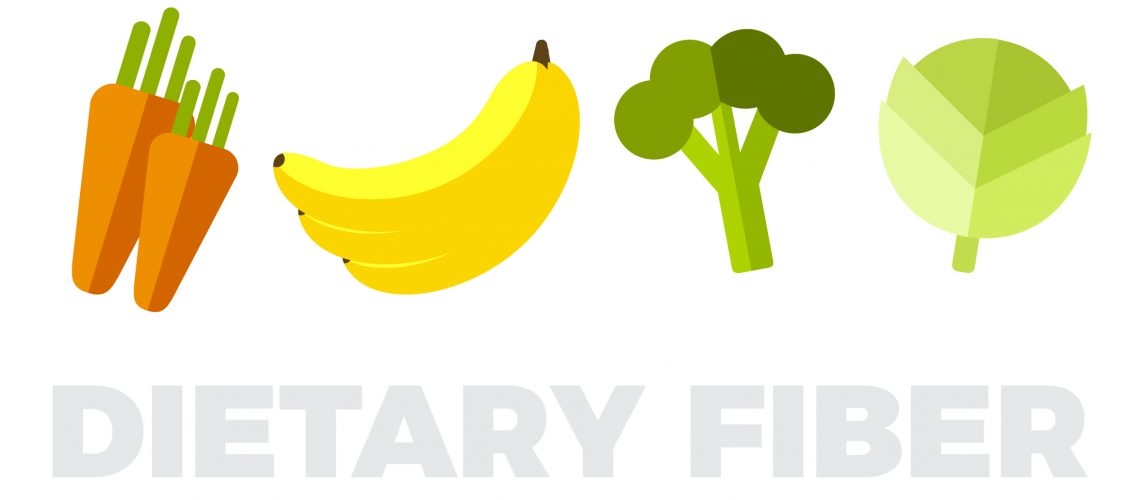Digest This
Click on the topics below to learn how probiotics can improve your digestive health, naturally.

The Benefits of Dietary Fiber
- @drHoberman
- Disease, Healthy Aging, Probiotics
Are you eating enough dietary fiber to protect the health of your gut?
You may be eating lots of fiber in your diet if you enjoy…
- Fruits (raspberries and mangoes)
- Legumes (lentils and chickpeas)
- Vegetables (cauliflower, green beans)
- Chocolate (the darker kinds with more cocoa)
- Popcorn (just skip the butter)
- Oats and barley
- Mushrooms
Many foods claim to have lots of fiber in them. Even processed foods like corn or potato chips and fruit juices contain some fiber, but it’s far less compared to more minimally processed foods.
Understanding dietary fiber
To really understand dietary fiber is to know the differences between the different kinds: Soluble (the kind dissolved by water) and insoluble (the kind not dissolved by water).
Both soluble and insoluble fiber are good and come in different amounts depending on what you’re eating.
Insoluble fiber works best in your gastrointestinal tract by “attracting” water to your stool, making it easier to pass with less stress on your bowel.
Conversely, soluble fiber is dissolved by water and fermented into beneficial by-products including short-chain fatty acids (SCFAs).
What are the benefits?
When you digest fiber-rich foods, your gut generates a number of beneficial SCFAs. One of them — butyrate — provides nourishment for healthy bacteria, but that’s not all.
Butyrate acts to strengthen the structural integrity of the gut, protecting it from leaky gut, a problem created when breakdowns in the intestinal wall allow undigested food and other toxic waste products to seep into the bloodstream.
Butyrate also improves heart health by lessening problems with inflammation and the presence of fatty plaque that can clog arteries — a sure sign of atherosclerosis.
Eating more soluble fiber also delays the emptying of your stomach, which promotes more fullness, meaning you won’t feel the need to each as much as you did before.
In fact, a very recent review of studies, appearing in the medical journal Nutrients, underscored these important benefits and generally reported healthy alterations of gut bacteria among patients.
How much dietary fiber do you need for your health?
Despite all the good dietary fiber can do, the quality of your diet and the amount of fiber you consume each day determines how much you’ll really benefit.
Eating the right amount of fiber every day can be a challenge, especially for men who need a bit more of it (30-38 grams) than women (21-25 grams), depending on age.
That problem can be more difficult if you’re always eating on the go and your diet is chock full of highly processed, sugary and fatty foods, the kinds with little to no fiber content.
Adding roughly 30 grams of fiber may sound like a lot yet, in reality, that amounts to about 1 powerful ounce of protection.
But that’s not all you can do…
Taking a probiotic with multiple strains of beneficial bacteria like EndoMune Advanced Probiotic with 10 strains of beneficial bacteria and the prebiotic FOS (fructooligosaccharide) enhances the natural fermentation of fiber that feeds your gut and protects your health.
If you’ve been wanting to lose weight, you may want to consider EndoMune Metabolic Rescue, a special probiotic/prebiotic blend that stimulates the production of hormones in your gut and decreases your appetite.
References
There Is An Endomune Probiotic For Every Lifestyle
-
EndoMune Metabolic Rescue
$44.95 -
EndoMune Advanced Probiotic
$42.95 -
EndoMune Companion Pack
$112.93








